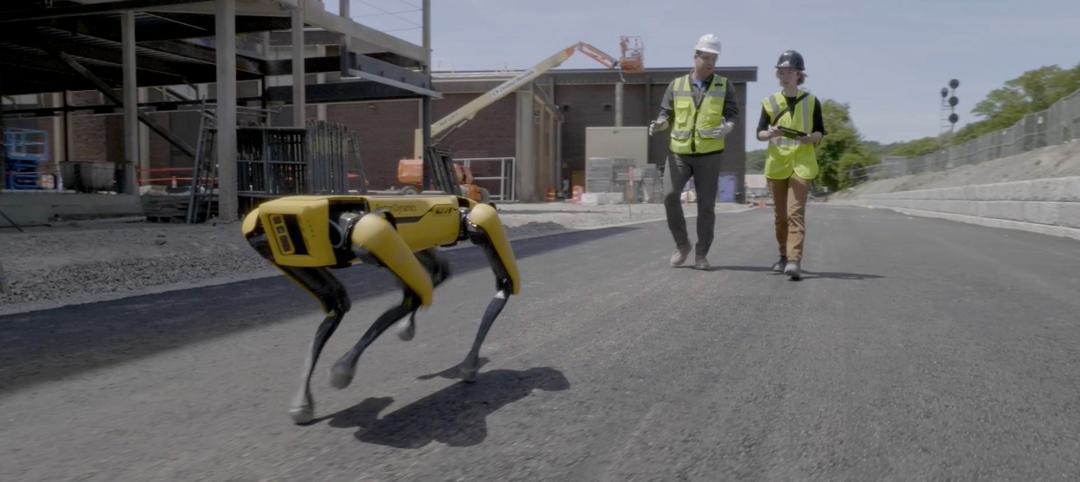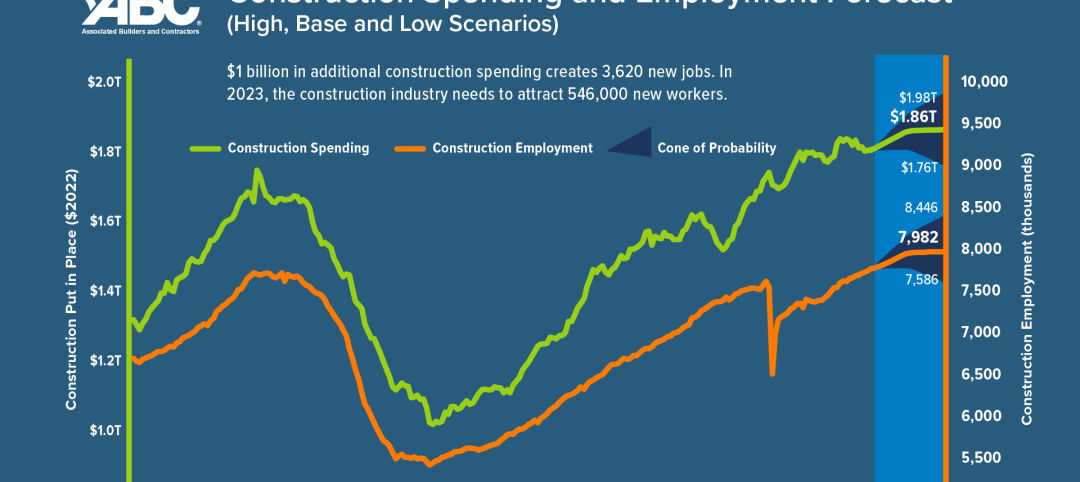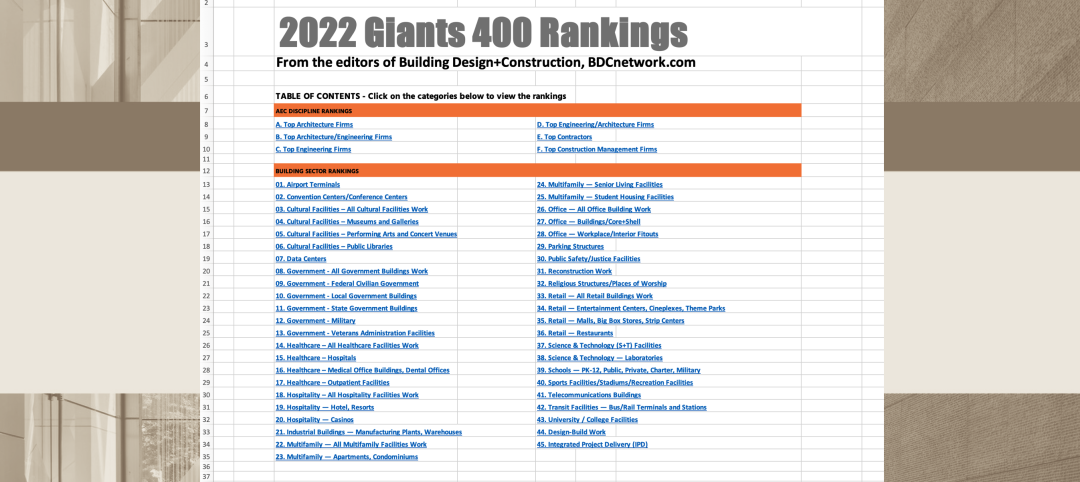A recent survey of 514 project, site, and construction managers in the U.S. and the United Kingdom, conducted by OnePoll for XYZ Reality, a leading provider of augmented reality applications, found that 94 percent had project backlogs and 63 percent admitted to delivering projects off schedule either “somewhat” to “very frequently.”
“Poor project performance, low productivity, and costly major project failures—and high-profile industry bankruptcies—continue to dog the sector,” wrote KPMG International in its recently released 2023 Global Construction Survey, based on responses from 257 engineering and construction firms and project owners around the world (29 percent of which were based in North America).


Respondents to KPMG’s survey, while mostly “cautiously optimistic” about their industry’s future, still lamented that less than half of their projects are being completed on time. Both surveys cite similar reasons why projects stall, starting with nagging supply-chain delays, labor shortages, and rising construction costs. KPMG is also seeing a “dramatic shift” by contractors away from fixed-price and guaranteed maximum-price contractors for major projects. Colin Cagney, the firm’s director of infrastructure, capital projects, and climate advisory in the U.S., surmises that contractors are attempting to mitigate their primary responsibility for performance risk.

XYZ Reality’s survey notes, too, that construction firms struggle for a variety of reasons to meet their clients’ sustainability goals, and their projects get delayed as well by unexpected design changes, labor shortages, and poor jobsite communication.


The biggest priority for respondents to KPMG’s survey is improving estimating accuracy, transferring risk, and increasing innovation. Both surveys depict an industry turning more toward technology for answers. Engineering-grade AR, AI, robotics, and drones are among the technological solutions preferred by respondents to XYZ Reality’s survey. More than eight in 10 respondents to KPMG’s survey have adopted mobile platforms, 43 percent are using robotics, and 40 percent are in early stages of using artificial intelligence. KPMG’s respondents also believe emerging technologies that include 3D printing have greater potential for delivering better returns on investment.
More than one-fifth of KPMG respondents have adopted modular and offsite manufacturing on all projects, and 60 percent on at least some projects.
“As our business grows, we want to be evolutionary rather than revolutionary,” stated John Murphy, CEO of J. Murphy & Sons Ltd., a London-based infrastructure construction firm, whose comments were among several respondents quoted in KPMG’s report. “We are continuously investing to keep up with the pace of technological change—constantly progressing.”

ESG and DEI are now priorities
This is KPMG’s 14th Global Construction Survey, which allows the firm the benefit of hindsight. One of the trends it has tracked is a stronger commitment among E+C firms to incorporate Environmental, Social, and Governance (ESG) precepts into their project practices. Nearly 54 percent of respondent firms “fully envision” the benefits of ESG and are aggressively pursuing maturity and improvement by embedding ESG into capital projects. (Admittedly, some of these pursuits are being mandated by stricter legislation.)
Firuzan Speroni, KPMG’s U.S. director of infrastructure, capital projects, and climate advisory, sees “a huge opportunity” for E+C firms and owners to commit to decarbonization of their buildings by measuring potential embodied carbon and choosing building materials with help to reduce it.
Respondents to the 2023 global survey ranked Diversity, Equity, and Inclusion as the third-most-important factor determining their success. Half of those respondents cited the importance of diversified workplace demographics to help address disruption. And 46 percent agreed that updating models for remote working and jobsite travel can contribute to construction projects’ resilience. However, the survey also found that the industry needs to do a better job of attracting and retaining talent. (For example, owners were only “relatively” concerned about reducing greenhouse gas emissions from their projects.)
Finding answers in tech
Both surveys highlight the centrality of innovation to the success of projects and businesses. For example, in 2017 E+C firms were only starting to deploy project management information systems, sensors, drones, or other robotics. This year’s survey, on the other hand, found that 81 percent of respondents from E+C firms say their organizations have adopted, or are starting to adopt, mobile platforms. The use of virtual reality tool has almost doubled (to 56 percent of respondents from 28 percent in 2017). Nearly half of E+C firms responding to the survey have adopted digital twin on at least some of their projects.
“The successful adopters are championing innovation from the very top, and investing in educating their teams,” observed Suneal Vora, a Partner in Business Consulting-Capital Projects and Industry 4.0 for KPMG in India. E+C firms must advocate for innovation, though, as owners seem somewhat less willing to adopt new technologies for their projects.

Keep up with a changing landscape
In summary, the key takeaways from the KPMG Global Construction Survey are:
•Address productivity as a matter of urgency, by taking an outside-in approach
•Master enterprise risk management, and have the confidence to resist a race to the bottom in choosing and financing projects
•Truly embed ESG as a component of a company’s sustainability profile and access to capital and talent
•Become data masters, which can help make jobsites safer and attract a new breed of digital worker.
Related Stories
Sustainability | Apr 4, 2023
NIBS report: Decarbonizing the U.S. building sector will require massive, coordinated effort
Decarbonizing the building sector will require a massive, strategic, and coordinated effort by the public and private sectors, according to a report by the National Institute of Building Sciences (NIBS).
Multifamily Housing | Mar 24, 2023
Average size of new apartments dropped sharply in 2022
The average size of new apartments in 2022 dropped sharply in 2022, as tracked by RentCafe. Across the U.S., the average new apartment size was 887 sf, down 30 sf from 2021, which was the largest year-over-year decrease.
Multifamily Housing | Mar 14, 2023
Multifamily housing rent rates remain flat in February 2023
Multifamily housing asking rents remained the same for a second straight month in February 2023, at a national average rate of $1,702, according to the new National Multifamily Report from Yardi Matrix. As the economy continues to adjust in the post-pandemic period, year-over-year growth continued its ongoing decline.
AEC Tech | Mar 14, 2023
Skanska tests robots to keep construction sites clean
What if we could increase consistency and efficiency with housekeeping by automating this process with a robot? Introducing: Spot.
Industry Research | Mar 9, 2023
Construction labor gap worsens amid more funding for new infrastructure, commercial projects
The U.S. construction industry needs to attract an estimated 546,000 additional workers on top of the normal pace of hiring in 2023 to meet demand for labor, according to a model developed by Associated Builders and Contractors. The construction industry averaged more than 390,000 job openings per month in 2022.
Industry Research | Mar 2, 2023
Watch: Findings from Gensler's latest workplace survey of 2,000 office workers
Gensler's Janet Pogue McLaurin discusses the findings in the firm's 2022 Workplace Survey, based on responses from more than 2,000 workers in 10 industry sectors.
Architects | Feb 24, 2023
7 takeaways from HKS’s yearlong study on brain health in the workplace
Managing distractions, avoiding multitasking, and cognitive training are key to staff wellbeing and productivity, according to a yearlong study of HKS employees in partnership with the University of Texas at Dallas’ Center for BrainHealth.
Office Buildings | Feb 9, 2023
Post-Covid Manhattan office market rebound gaining momentum
Office workers in Manhattan continue to return to their workplaces in sufficient numbers for many of their employers to maintain or expand their footprint in the city, according to a survey of more than 140 major Manhattan office employers conducted in January by The Partnership for New York City.
Giants 400 | Feb 9, 2023
New Giants 400 download: Get the complete at-a-glance 2022 Giants 400 rankings in Excel
See how your architecture, engineering, or construction firm stacks up against the nation's AEC Giants. For more than 45 years, the editors of Building Design+Construction have surveyed the largest AEC firms in the U.S./Canada to create the annual Giants 400 report. This year, a record 519 firms participated in the Giants 400 report. The final report includes 137 rankings across 25 building sectors and specialty categories.
AEC Tech Innovation | Jan 24, 2023
ConTech investment weathered last year’s shaky economy
Investment in construction technology (ConTech) hit $5.38 billion last year (less than a 1% falloff compared to 2021) from 228 deals, according to CEMEX Ventures’ estimates. The firm announced its top 50 construction technology startups of 2023.


















